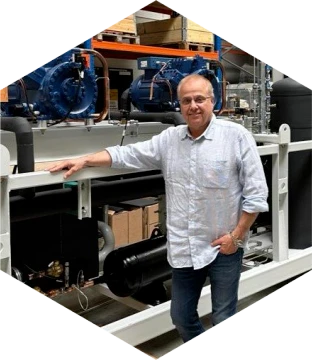The search for sustainable heating solutions has never been more urgent as the world grapples with rising energy costs and increasingly stringent environmental regulations. Solar thermal systems harness the sun’s irradiation to generate heat, representing half of the global end-use of energy consumption. Thus, it is emerging as a transformative technology for industrial and commercial applications. Here are five critical insights into how solar thermal systems can drive sustainable change in the industry.
1. Reducing Greenhouse Gas Emissions and Energy Costs
Solar thermal systems can be crucial in cost-effectively reducing industrial greenhouse gas emissions. Industrial heat accounts for half of all heating and heat accounts for 75% of industrial energy, mostly Scope 1. The industry can significantly cut emissions and costs by replacing traditional, expensive, and polluting fossil fuel-based heating methods with clean, efficient solar thermal solutions.
2. Enhanced Energy Security and Independence
Energy security is a top priority for the industry, especially given the financial risks of volatile fossil fuel markets due to frequent geopolitical crises. Solar thermal systems, especially when combined with thermal storage, offer a renewable, reliable heat source, immune to geopolitical disturbances or price fluctuations. This results in predictable energy costs and improved long-term financial planning capabilities. By embracing solar thermal solutions, industries can ensure a consistent energy supply and gain independence from external energy sources, enhancing their reliability and security.
3. Tailored Solutions for Heat-Intensive Industries
Industries such as food and beverage, chemicals, and pharmaceuticals are particularly heat-intensive, consuming large amounts of energy to sustain their core processes such as boiling, sanitizing, cleaning, distillation, etc. Thermo-solar systems, which utilize thermal collectors and thermal storage, backed by industrial heat pumps, offer an efficient solution for these sectors. Providing consistent, controlled heating with minimal emissions, these systems help industries maintain their operational standards while reducing energy consumption and costs.
4. A Seamless Transition with Heat as a Service (HaaS)
One of the significant barriers to adopting renewable heat technologies such as solar thermal collectors is the required upfront capital investment. This challenge can be simply addressed with the Heat as a Service (HaaS) business model. This innovative approach allows customers to pay only for the heat they use without significant upfront investment in infrastructure. Under the HaaS model, The heat supplier is responsible for designing, financing, installing, and maintaining the heating systems. This removes financial barriers, provides immediate cost savings, and simplifies the transition to renewable heating solutions.
5. Compliance with Environmental Regulations and Green Credentials
Adopting solar thermal systems helps businesses align with environmental regulations by reducing their carbon footprint. This is particularly important as more stringent regulations come into force worldwide. Companies that embrace renewable heat solutions comply with these regulations and enhance their green credentials, positioning themselves as leaders in sustainability. This can be particularly beneficial in sectors such as healthcare and tourism, where consumers and stakeholders increasingly value environmental responsibility and green brands.
Embrace the Future of Industrial Heating with TIGI Solar
Solar thermal systems represent more than an environmental choice; they are a strategic investment in operational efficiency, financial stability, and future growth. As industry leaders navigate the complexities of sustainable development and energy management, solar thermal technology offers a proven solution that addresses multiple challenges simultaneously. By partnering with TIGI for advanced renewable heat solutions, companies position themselves at the forefront of industrial innovation. This technology meets current energy needs and prepares businesses for a future where sustainable operations are a crucial driver of success.







